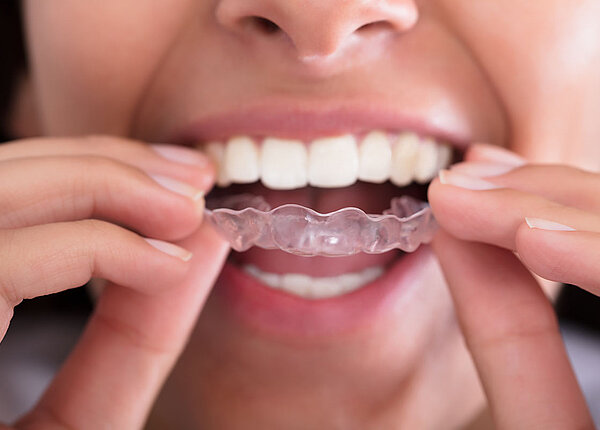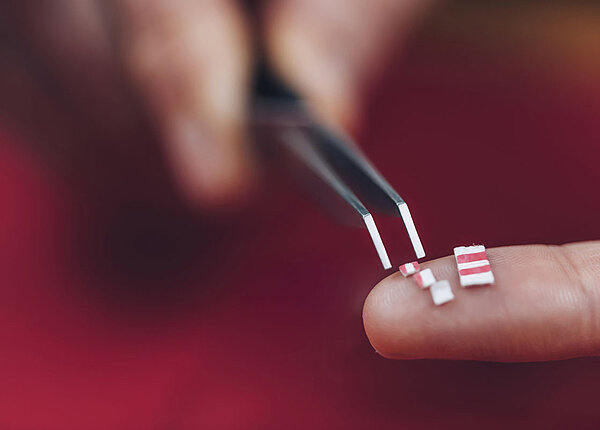English for PTA
DRY EYES
Seite 1/1 5 Minuten
The tear film is made up of three layers: fatty oils, aqueous fluid, and mucous. Problems with any of the layers can lead to dry eyes. Dry eyes can occur for example when the lacrymal glands do not produce enough fluid. Some of the most common causes of decreased tear production are: aging, medical conditions such as Sjögren’s syndrome, rheumatoid arthritis, and lupus; medications such as antihistamines, decongestants, hormone replacement therapy (HRT), antidepressants, and blood pressure medication; corneal nerve desensitisation (especially from contact lens use), nerve damage, and damage caused by laser surgery.
Female pharmacy customer: Good morning. Do you speak English?
PTA: Good morning, yes I do. How may I help you?It’s my eyes, as you can see! They have been a little irritated for the last few days.Could you describe your symptoms a little more, please? You know, what it feels like, if your eyes are dry or if they are watering all the time.
Yes, I only started noticing it about four days ago. I was working on my computer and had the feeling that there was dust or even sand in my eyes.
Are you taking any medication that might have triggered the irritation? Antihistamines, decongestants, HRT, anything like that?
No, I don’t have any allergies, and the only medication that I take regularly is the pill.
Well the pill has been known to cause dry eye in some women. It depends on what kind of contraceptive it is. Do you know if your pill is a combination of oestrogen and progesterone or just progesterone?
It’s definitely a combination med!
Therefore, it’s highly unlikely to have been caused by that. You said you noticed it while working on your computer. Have you been working a lot on the computer recently?
In fact, I have. Could my dry eyes have been caused by that?
It’s quite common nowadays. The problem is that while looking at the screen for long periods, we forget to blink. Blinking is important for distributing tear fluid.
What do you recommend?
We have these preservative-free drops that contain hyaluronic acid. If they don’t help after one or two days of use, you should seek out an ophthalmologist to get your eyes checked as the problem could be caused by an underlying medical condition.
Are there other things that cause eye irritation?
Certainly, it could be a stye, caused by bacteria, or an ingrowing eyelash.
Okay, I’ll see how I get on with the drops. Thank you.
You are welcome. I know it’s a terrible feeling when eyes are so irritated! Goodbye, have a nice day!
You too, thank you. Bye!
You can find this article on page 24 in DIE PTA IN DER APOTHEKE 11/2021.
Catherine Croghan, Lecturer in English and native speaker
Vocabulary
| dry eye | trockenes Auge |
|---|---|
| lubrication | Schmierung |
| tear film | Tränenfilm |
| inflamed eye glands | entzündete Drüsen (am Lidrand) |
| layers | Schichten |
| mucous | (hier) Schleimschicht |
| lacrymal glands | Tränendrüsen |
| decreased | verringert, vermindert |
| medical conditions | Krankheiten |
| hormone replacement therapie | Hormonersatztherapie |
| nerve damage | Nervenschaden, Nervenschädigung |
| laser surgery | Laserbehandlung |
| describe | beschreiben |
| dust | Staub |
| contraceptive | Empfängnisverhütungsmittel |
| unlikely | unwahrscheinlich |
| recently | in letzter Zeit |
| blink | blinzeln |
| preservative-free | frei von Konservierungsmitteln |
| hyaluronic acid | Hyaluronsäure |
| ophthalmologist | Augenarzt, Augenärztin |
| stye | Gerstenkorn |
| ingrowing | eingewachsen |











